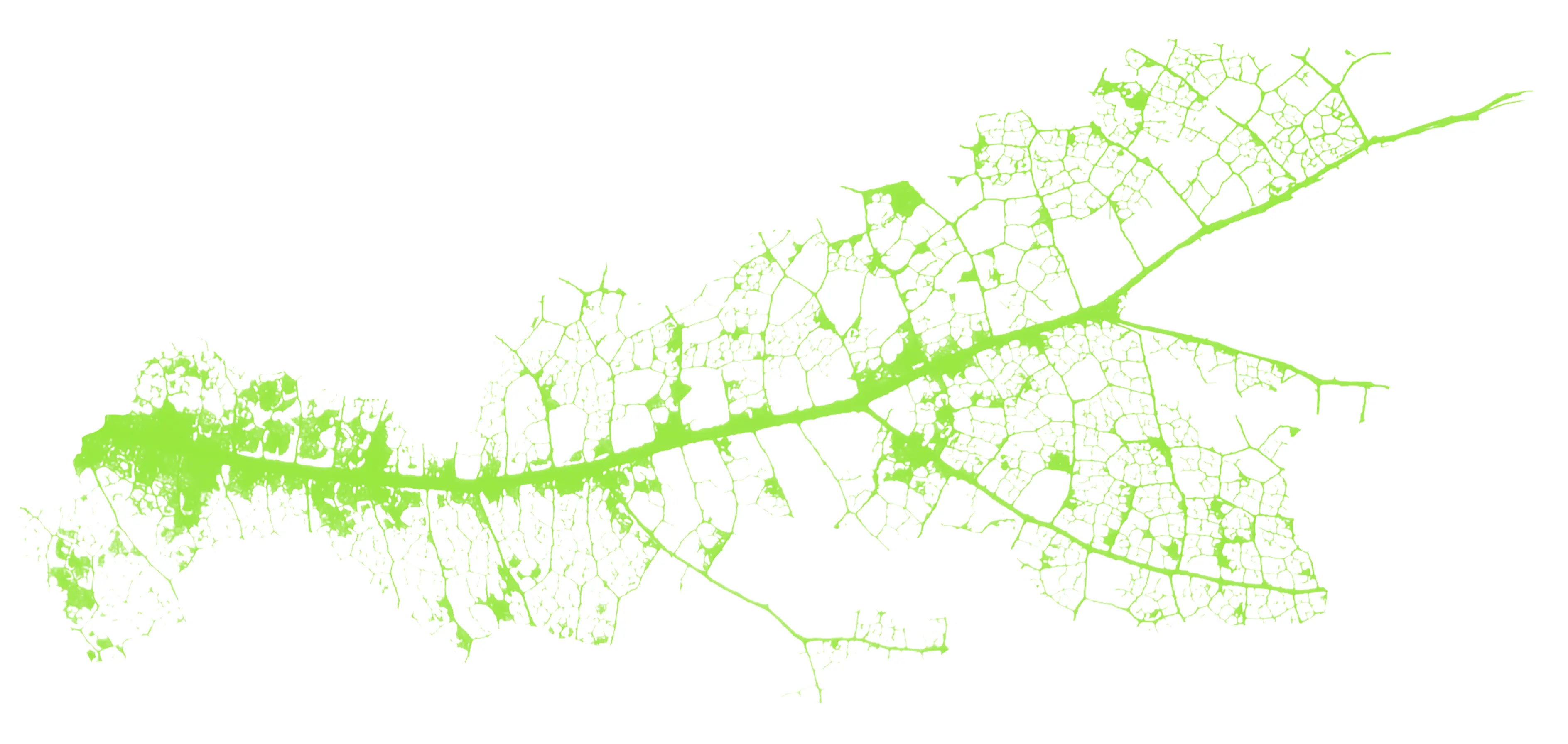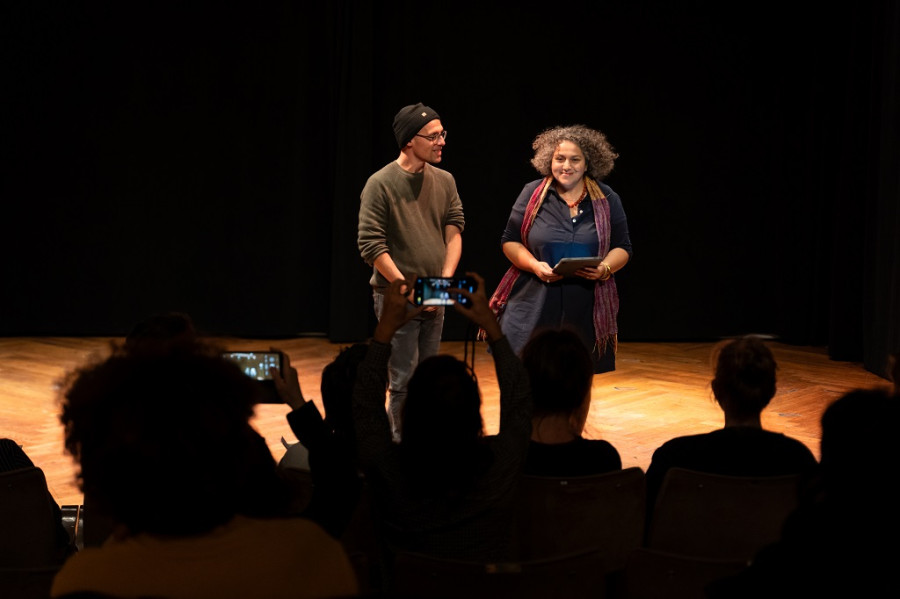
More beautiful translations in theatre
1. December 2023
A report by Mathilde Massuard and Henrike Rohrlack on the workshop and showing SPIELMATERIAL ÜBERSETZEN.

A report by Mathilde Massuard and Henrike Rohrlack (in German) on the workshop and showing SPIELMATERIAL ÜBERSETZEN on the initiative of the Bureau du Théâtre et de la Danse / Office for Theater and Dance, Institut Français Deutschland as part of euro-scene Leipzig 2023.
Under the unofficial motto "Translating is more fun when there are at least two of you", students from the Master's programme in Translatology (Anton Kalms, Judith Witzmann, Nicola Bieber, Paulina Rübenstahl and Philippe Barbier) and two teachers from the IALT (Mathilde Massuard and Henrike Rohrlack) took part in a workshop as part of the euro-scene Leipzig festival together with other interested parties from various professions and fields of study. The workshop entitled SPIELMATERIAL ÜBERSETZEN - EIN DRAMATURGISCH-ÜBERSETZERISCHER WORKSHOP took place on 8 and 9 November 2023 at Theaterhaus SCHILLE. Under the direction of author and director Leyla-Claire Rabih and translator and journalist Frank Weigand, text excerpts from the currently developing theatre production OST by Leyla-Claire Rabih and Élie Youssef were translated. They worked both in plenary - fifteen people - and in smaller groups, in French, German and Arabic. Some of the texts were already self-translated from German or French and were retranslated in the other direction during the workshop. This procedure was part of the creative process in the production of the play and was planned by the author and the translator from the outset.
In the course of the translation process, very different perspectives on the text emerged in each collective - due to the rather heterogeneous experiences and backgrounds of the participants. Form and speakability often took precedence over content. First and foremost in the working process was the decision on a translation strategy that should be pursued stringently in each group and for each text excerpt - all considerations and approaches that are not entirely foreign to translators of everyday texts, but which became much more vivid in the theatre texts.
In contrast to the usual approach in translation theory and practice, the workshop participants were not initially familiarised with the history of the play's creation, the references to real events and the connection between the individual sub-texts. The texts only came together like pieces of a jigsaw puzzle during the translation process and only then did they allow conclusions to be drawn about their real content. It was particularly exciting to observe the liberating effect this lack of knowledge had on the translation work and how many possible interpretations could be discovered in the texts, which the author left to our interpretation with the utmost confidence. In some cases, the source texts were even changed again in the course of the translation work. As Frank Weigand put it: "Every translation is a crash test for the source text".
Another special feature was that it was not absolutely necessary for all participants to understand the source languages French or Arabic, as we systematically worked in tandems or larger groups. For example, an Arabic interpreter took part in our translations from French and one of the students translated from Arabic together with him, and the students found the different professional backgrounds of the participants (literary and theatre translators with professional experience, students of translatology and theatre studies) to be a great enrichment, which strongly influenced the work with the texts and the always very lively discussions about different solutions. The opportunity for personal exchange with the experienced theatre translators during the breaks was also very gratefully received.
Another extremely positive experience for us teachers was meeting the students in this completely different, more informal context, which was not about teaching and learning in the usual sense, but rather about working together and observing each other.
At the end of the second working day (achieved far too quickly!), the resulting texts were dramaturgically edited together and then performed by the participants on the stage of the Schille theatre as a staged reading. The work went far beyond translation: the charming little theatre with its auditorium, stage and café provided a wonderful setting for serious work, cheerful exchange and lively theatre-making.
We would like to thank our students for their enthusiasm and their incredible eagerness to work, Leyla and Frank for their great trust and valuable advice, Christian Watty and Maria Bornhorn from euro-scene Leipzig for the fantastic opportunity they gave us with the workshop, and those responsible at the SCHILLE Theatre for their care and gallons of very good coffee.
Mathilde and Henrike